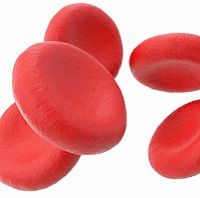Epoetin Alfa Biosimilar Effectively Treats Anemia
Researchers show that treatment with epoetin alfa biosimilar effectively reduces the symptoms of chemotherapy-induced anemia. Patients with absolute iron deficiency who also took iron supplements achieved improved response to treatment.

The SYNERGY study looked at the effect of 12-16 weeks of treatment with epoetin alfa biosimilar in a cohort of adult patients with solid tumors, lymphoma, or myeloma and chemotherapy-induced anemia (CIA). This subanalysis of that study assessed the treatment response to epoetin alfa biosimilar “in patients with/without iron supplementation and their target hemoglobin (Hb) levels.” Results were presented at the 57th American Society of Hematology Annual Meeting.
For this analysis, researchers evaluated 2,076 patients (about half of whom were male) with a mean age of 67±12 years. Nearly 90% of patients had not had a blood transfusion in the year prior to the study; nearly 93% of patients had not had received treatment with an erythropoiesis-stimulating agent (ESA) in that time.
According to the researchers, “A total of 31.6% (n=655) patients received iron supplementation, of whom 58.9% (n=386) received intravenous (IV) iron, 40.5% (n=265) had oral iron and 0.6% (n=4) were prescribed both oral and IV iron. An iron status assessment was more common in patients who were given iron supplementation, while over a third of patients who did not have an iron status were prescribed iron.”
At follow-up, “more than 70% of patients had a maximum Hb level above 11 g/dL, regardless of iron status.” The mean change in Hb level for patients with and without added iron was 2.26 g/dL and 2.22 g/dL at maximum during the study and 1.71±1.52 g/dL and 1.59±1.60 g/dL at final visit, respectively.
Patients’ “iron status” was used to place them into one of three groups:
- Absolute iron deficiency (coefficient of saturation of transferrin [CST] <20% and ferritin <100 μg/100 mL)
- Functional iron deficiency (CST <20% and ferritin ≥100 µg/100 mL)
- No deficiency (CST ≥20%)
Most patients who received no iron supplementation had no iron deficiency, compared with a minority of patients who did receive iron supplementation.
The researchers reported that patients with absolute iron deficiency who received iron supplementation “responded better to epoetin alfa biosimilar (increase of ≥1 g/dL since enrollment or increase of ≥2 g/dL, in the absence of transfusion in the 3 previous weeks) than those not given iron supplementation (74.5% vs 65.5%, p=0.403). Similar results were observed for patients with added IV iron.”
Based on these results, the authors concluded that epoetin alfa biosimilar was an effective treatment for anemia, and that iron supplementation “improved the response to epoetin alfa biosimilar in patients with an absolute iron deficiency, suggesting that iron status can be used to optimize treatment of patients with CIA with ESAs and iron supplementation.”